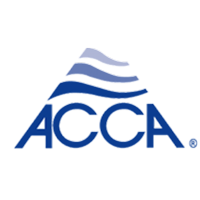Completing the search for your first home is thrilling. You’re likely trying to keep track of numerous details to ensure you’re making the right choice. We believe that gaining insight into your potential new HVAC system is essential. The property’s HVAC system represents a substantial investment and potential source of long-term costs, which is why due diligence should be a top priority for first-time homebuyers.
In this guide, we’ll outline seven tips for learning everything you can about a home’s heating and cooling system. And if you want a deeper opinion from the experts, consider calling Solar Air Inc.. Our experienced team can help you compare your options with industry insights that are second to none.
1. Which Kind of HVAC System Does the Home Use?
Start by determining what type of HVAC system the home features. Furnaces tend to last longer compared to air conditioners, and newer types of HVAC products like heat pumps feature average life spans that are impressively long. Knowing the make and specific model ensures you have a clear idea of how much routine maintenance it might need.
2. How Old Is the Current HVAC System?
It also helps to learn how old the HVAC system is when you’re considering a new home. On average, HVAC systems should survive for around 10-12 years. Knowing when it was installed helps you anticipate future maintenance needs or considerations if it might eventually stop working. Older systems may be more vulnerable to problems, so budgeting for a replacement unit could be necessary sooner than you thought.
3. Does the System Have a Warranty?
Don’t forget to look into whether the HVAC system is covered by a warranty. If it is, this can lighten the load for maintenance costs. HVAC warranties should take care of parts and labor, but the details in each policy will vary. Don’t forget to look into any terms you don’t recognize to make sure you fully understand your coverage and any possible out-of-pocket costs.
4. Has the System Ever Been Professionally Serviced or Maintained?
Take a close look at the maintenance history of the HVAC system, if the records are accessible. This service history can reveal if there have been regular problems or how often maintenance is performed. Ask about records for key tasks like filter changes, which is a positive sign indicating regularly scheduled tune-ups.
5. Are You Aware of the System’s Energy Efficiency Ratings?
Selecting a system with high energy efficiency means smaller utility bills and less of an impact on the environment. Try and find the seasonal energy efficiency ratio (SEER) ratings for air conditioning and the annual fuel utilization efficiency (AFUE) for furnaces. High SEER ratings mean more efficient cooling throughout the season, while higher AFUE ratings indicate that the fuel is efficiently converted into useable heat.
6. Have You Noticed Signs of Problems After Completing an Informal Inspection?
Even if you don’t have the know-how of an HVAC technician, you should still inspect the HVAC system yourself. Watch closely for signs of problems that haven’t been mentioned by the seller. This includes strange noises, spots with uneven heating or cooling and attempts to cover up any serious damage.
7. Is an Experienced HVAC Technician Available to Help?
If you’re not quite sure about the condition of the HVAC system, it’s beneficial to get input from certified HVAC technicians. They can spot things you might miss, such as refrigerant leaks, damage to the wiring or inefficient ductwork.
A Call with Solar Air Inc. Simplifies Your Home-Buying Journey
Selecting your first home should be thrilling, and Solar Air Inc. will do everything possible to ensure yours is too. Get in touch with us at 954-320-7398. We can go over the details about how our HVAC services help make this process smoother, giving you what you need to dive into home-ownership with confidence.



